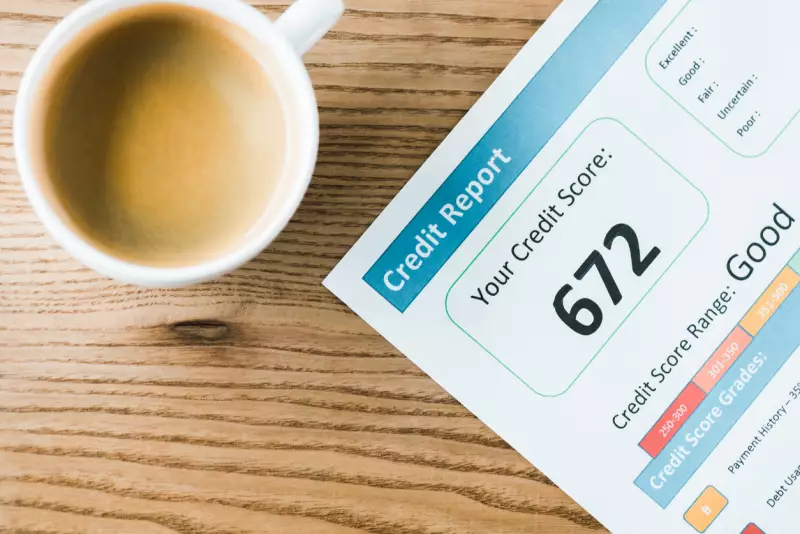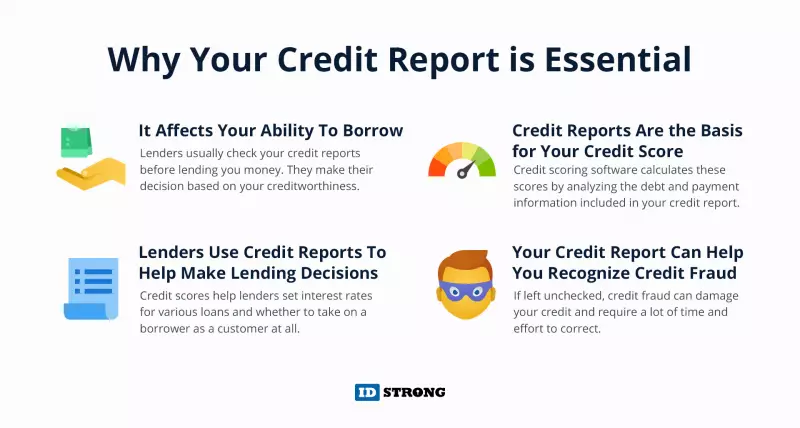How to Read Your Credit Report
Table of Contents
- By Rita
- Published: May 02, 2022
- Last Updated: May 24, 2022

Your credit report is a reflection of your financial health. It’s essential to understand your credit report to manage your financial health. Reading a credit report may be difficult and confusing at first, but once you understand how it works, you can easily digest the information.
Your credit report is just a record of your credit history. Lenders and financial institutions use your credit report to determine your creditworthiness before loaning you funds. You should understand how to read credit reports and check for errors at least once every year.
How To Get a Copy of Your Credit Report
It's relatively easy to get a copy of your credit report. You’re entitled to one free credit report annually from the three large credit reporting agencies: Equifax, Experian, and TransUnion.
You can obtain all three reports by ordering online from AnnualCreditReport.com. Alternatively, you can call 877-322-8228.
How To Read Your Credit Report
If you’ve been wondering, ‘how do I analyze my credit report?’, this section will answer that.
How each credit bureau arranges the credit reports will vary. However, each of the credit bureaus will contain information from these five areas:
Personal Information
On the credit report, the personal information section will include your:
- Name (any aliases).
- Social security number.
- Contact information.
- Birthdate.
- Current and historical addresses.
Ensure that your credit report personal information is accurate. Each section of your credit report must pertain to only you. Look for information that may belong to your spouse, dependents, or a stranger.
Misspelled names, an incorrect phone number, or an address that doesn’t belong to you may indicate that the report may belong to someone else.
Employment History
Your credit report will show your employers. Employment information shows up under personal information.
Employment history does not affect your credit score, however, it is included to verify your identity. Therefore, a huge red flag is inaccurate information like unfamiliar company names or employers you haven't worked for.
Credit History
The most extensive and most significant section of your credit report. Credit bureaus calculate your FICO credit score using a few parameters, including the amount owed (30%), the length of credit history (15%), new credit (10%), and credit mix (10%). However, your payment history determines most of your credit score calculation (35%).
It's essential to check for errors in this section of your report. This is because the credit history includes crucial data used to determine your credit score. Your credit report will have a credit history that will consist of the following items:
- Payment History - This is a record of all your payments, especially if you made minimum payments on time. Negative accounts will indicate any payments you miss.
- Current and Closed Accounts for the Last 7 to 10 Years - A listing of your individual accounts, joint accounts, closed accounts, and authorized user accounts.
- Names of Creditors and Lenders Every account included will have the name of the lender or creditor and the date you opened it.
- Account Status - Some accounts may be listed as open, closed, paid, transferred, or foreclosed. Charged-off accounts mean the debt is old (90-180 days) and is past due and in collections.
- Current Balances - The balance last issued by the financier of the debt and the highest ever balance on the account.
- Credit Limits or Loans - The credit history will include the original loan amount for any fixed installment loans and the current credit limit for revolving accounts like credit cards.
- Account Open and Close Dates
Accounts will continue to show on your credit report even after you have closed them or paid them off. Any adverse credit information such as delinquent payments and charged off accounts can stay on your credit report for up to seven years.
After ten years, credit information on closed accounts without any issues will drop off your credit report.
You should carefully review your credit history to confirm that all the details are accurate. These details include:
- The account name and number.
- The balance.
- Payment history.
- Payment due date.
- Payment status.
Check to ensure that the account's current credit limits or original loan amounts are accurate. If the credit limit you see listed is lower than the one you have, it may hurt your credit utilization, which ultimately impacts your credit score.
Other potential errors in this section to look out for include:
- Credit bureaus incorrectly report accounts in good standing as being delinquent.
- Closed accounts that still show as open.
- Payments you made on time but reported as late.
- Open accounts incorrectly reported as delinquent.
- Open accounts claiming you're the owner when you're an authorized user.
- Incorrect dates, including when you opened the account or closed it.
- The same account listed several times under the names of different creditors (this usually happens with delinquent accounts or accounts sent to collections)
Public Records
Any public records in your name regarding debts will be in your credit report, including bankruptcies, foreclosures, and repossessions. Public records will remain on your report for seven years, except for Chapter 7 bankruptcy, which remains for ten years.
Any negative information can hurt your credit score since they show a pattern of delinquency.
Tax liens no longer show up on credit reports. If you discover a tax lien on your credit report, you should dispute this error with the courts.
Any public record included in your credit history will include your name, address, social security number, or date of birth. Verify that these public records are yours and are free of any errors.
Credit Inquiries
A credit inquiry shows who accessed your information and when. There are two types of credit inquiries:
- Soft Inquiries - are when you check your credit. Also known as soft credit checks, they can occur when creditors check your credit and send you pre-approved offers.
- Hard Inquiries - are when lenders check your credit when you apply for new credit cards, credit card limit increases, loans, or mortgages. Hard inquiries also occur when a collection agency contacts you.
Soft inquiries don't affect your credit score. Hard inquiries may affect your credit by a few points. Hard inquiries might affect your ability to get credit because they are seen as riskier.
Hard inquiries usually drop off your credit report within 45 days or less.
Go through the dates of all inquiries since they should be removed after two years. You can file a dispute and request a hard inquiry removal.
You'll find various codes on your credit reports, and you may be wondering how to read credit report codes. Each central credit bureau has its own codes, so never assume a code used by one bureau means the same thing as another bureau’s report. Each bureau has a guide explaining the codes on that specific bureau’s report.
Why Credit Reports Are Important

You must be well versed in how to read a credit report. Here's how your credit report is essential:
- It Affects Your Ability To Borrow - Lenders usually check your credit reports before lending you money. They make their decision based on your creditworthiness.
- Credit Reports Are the Basis for Your Credit Score - Credit scores are three-digit numbers that predict your likelihood of missing payments on an account. Credit scoring software calculates these scores by analyzing the debt and payment information included in your credit report. Understanding your credit report helps you work on building your credit score.
- Lenders Use Credit Reports and Scores To Help Make Lending Decisions - Credit scores help lenders set interest rates for various loans and whether to take on a borrower as a customer at all.
- Your Credit Report Can Help You Recognize Credit Fraud - If left unchecked, credit fraud can damage your credit and require a lot of time and effort to correct.
Unusual credit report entries like hard inquiries you don’t recognize or accounts you never opened can indicate criminal activities to borrow money or buy goods in your name. Spotting these signs early and taking immediate action to address them can spare you significant migraines.
How To Dispute an Error on Your Credit Report
If you find errors on your credit reports, you can have the report updated by filing a dispute with the credit bureau. Inaccurate information can affect your credit score, and so can any application process that considers your report.
It's, therefore, essential to catch these mistakes as early as possible. You should check your credit report for errors regularly to find mistakes or look for anything that indicates identity theft.
Always provide documentation when filing a dispute. You'll have to provide proof of your identity. Depending on the specific error, you may have to submit copies of documents to support your cases.
If you want to dispute an error on your credit report, contact the three credit bureaus. Experian, Equifax, and TransUnion all accept online disputes. You can quickly fill in your information online or dispute it via mail or phone.
















